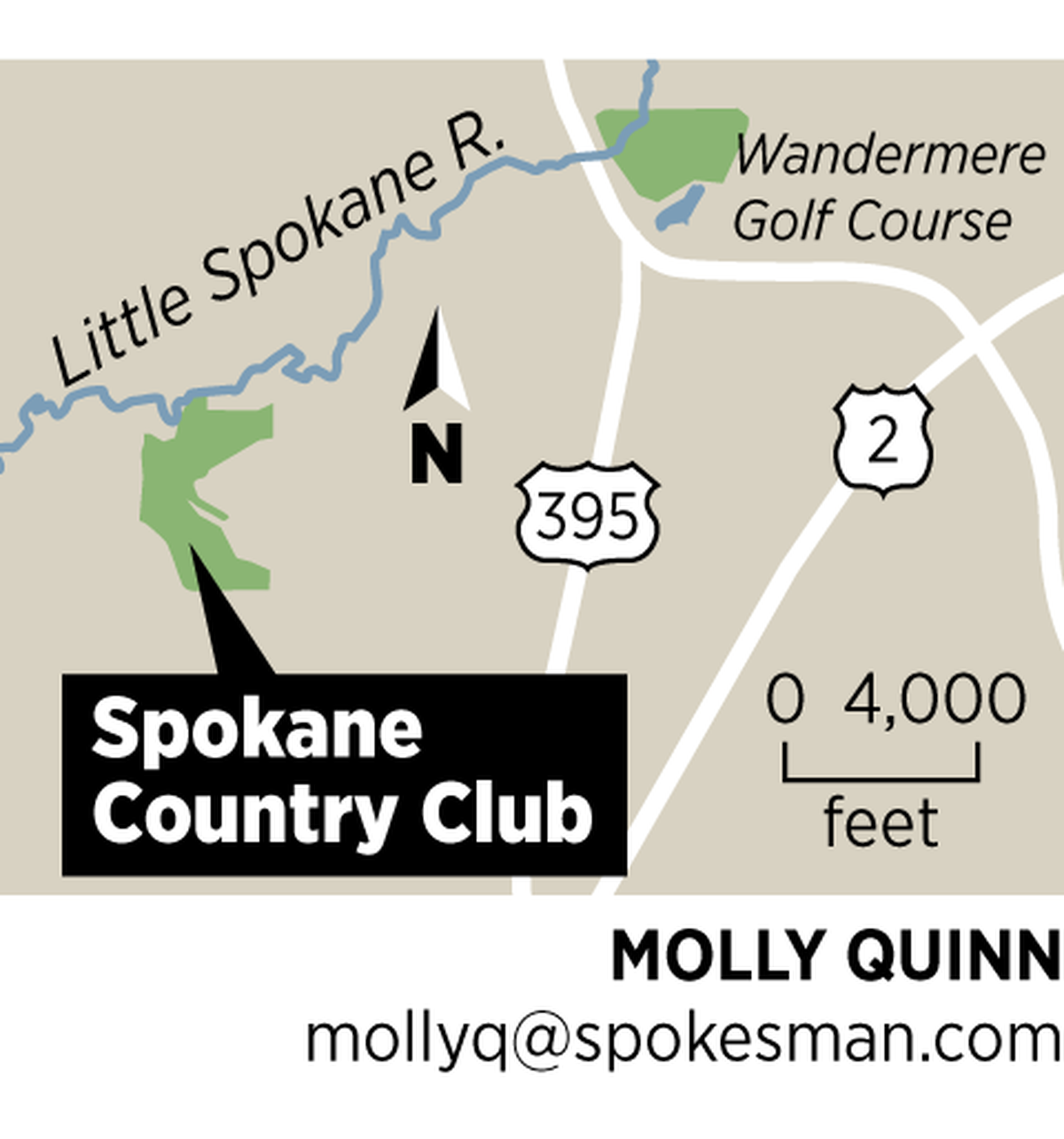Spokane Country Club could be headed for sale

The Spokane Country Club could be sold to settle its multimillion bankruptcy case as dozens of members quit and business slows in the aftermath of a gender discrimination verdict.
The club sought bankruptcy protection two years ago to prevent collection on the $1.4 million verdict and related legal costs, and the members have not coalesced around a strategy to keep their private golf club.
It all points to a possible sale, according to bankruptcy records filed Friday.
Attorney Barry Davidson said the club is appealing the verdict as it searches for a way to survive bankruptcy.
There have been several suitors, Davidson said.
One offer described in the bankruptcy documents is a $1.85 million unsolicited bid from RMG Golf Course Management LLC acting “in concert with a group of Spokane area investors.”
RMG was formed three years ago by PGA winner Ryan Moore. The Lakewood, Washington, company now operates three courses in the south Puget Sound. There is no indication who is involved in the Spokane investors group.
While the club has been approached, no offers have been accepted as the starting point for a future auction.
“Members want to see the club’s history preserved,” Davidson said. “They want to keep the legacy and pass it along to future generations to appreciate and enjoy.”
A group of Spokane notables, including architect Kirtland Cutter, formed the club in 1898 near what is now the South Perry Business District. Membership cost $5.
Within a few years it moved further up the South Hill to what is now Hart Field and hired Cutter to design and build a clubhouse. It burned in 1908 and the club hunted for a new location.
In 1910, the club purchased land along the Little Spokane River north of the city and began building a course. Another fire, in 1946, razed the clubhouse, according to Spokesman-Review archives.
Members including Bing Crosby donated money to build a new clubhouse. It still stands today.
The discrimination lawsuit alleged a gender-based code at the club that denied women the best tee times and barred them from certain areas of the restaurant, even though the four women who sued, Drusilla Hieber, Laura Skaer, Nancy Van Noy and Tracy Christensen, paid the same fees.
The suit, pressed by attorney Mary Schultz, also revealed boorish behavior by some men in the club that further devolved into ill-fated intimidation of the women.
Legal findings in the case also determined that the club, which is organized as a private nonprofit organization exempt from paying taxes, is a public accommodation because of its relative ease of gaining membership, golf supply sales to the public, and its allowance of nonmembers to use club facilities for events. Thus, the club was subject to state laws banning discrimination.
A Spokane jury stung the club with a $579,000 verdict in 2013, and Schultz later won a ruling ordering the club to pay her $773,000 in attorney fees and costs with interest accruing.
The state judge overseeing the case took aim at the club, saying that even after the discrimination verdict it continued violating state anti-discrimination laws.
The club has suffered ever since: 32 members have left, putting a $320,000 dent in its balance sheet as the club redeemed the $10,000-per-member shares.
While the club charter allows 370 full memberships, it now has 281. And of those, another 59 want out and have put their names on an “exit list.”
The club doesn’t have to buy back those membership shares, but the list has created uncertainty about the roster and long-term financial outlook.
Schultz has said her clients wanted the club to change, not sell.
But as the case continues and club members rejected a settlement offer two months ago to instead pursue its legal appeal rather than settling the case, Schultz has urged U.S. Bankruptcy Judge John A. Rossmeissl to approve a liquidation plan forcing the club to sell its course and buildings.
Although the private golf club has among the finest 18-hole courses in the Northwest, its legal woes and membership issues mirror unfavorable economic trends afflicting exclusive and expensive clubs across the country.
The club’s property, buildings and equipment are valued at $9.8 million, according to the club’s audited financial statements in 2013. That does not include the club’s liabilities, depreciation or the possibility of a distressed sale, which could shave millions off what could normally be raised in a sale of the club at auction.
The auditing firm Kidder, Mathews & Segner Inc., which appraised the club, outlined the closure of hundreds of courses across the country during the recent economic downturn. The popularity of golf peaked in 2005 with 30 million people swinging clubs. By 2011, the number of golfers dipped to about 25.7 million.
While Spokane golf has weathered the downturn, the low greens fees offered at the region’s beautiful and accommodating public courses has stifled new course construction and forced private operators to structure the rates to remain competitive.
A series of decisions regarding the club’s bankruptcy are expected later this fall.